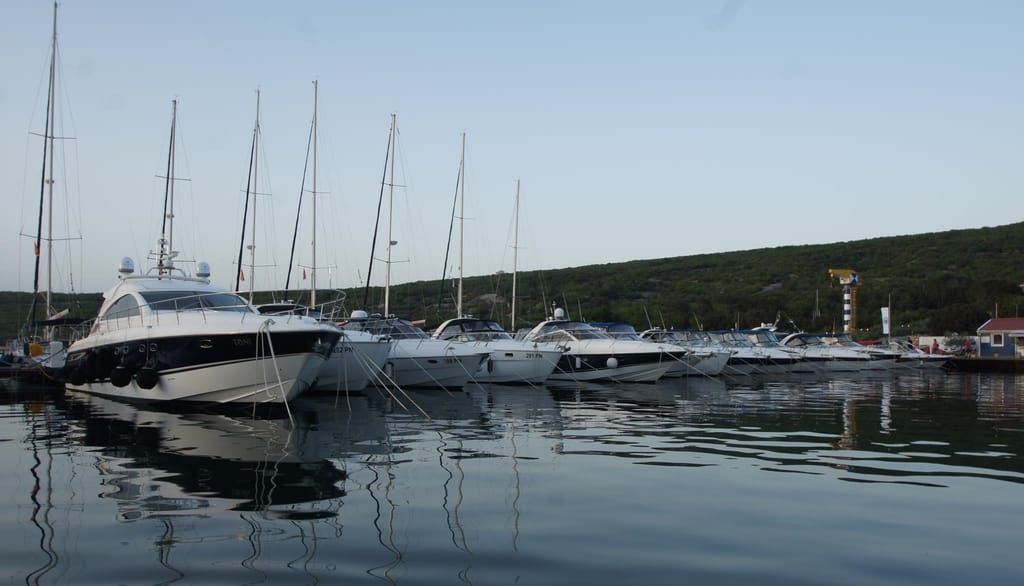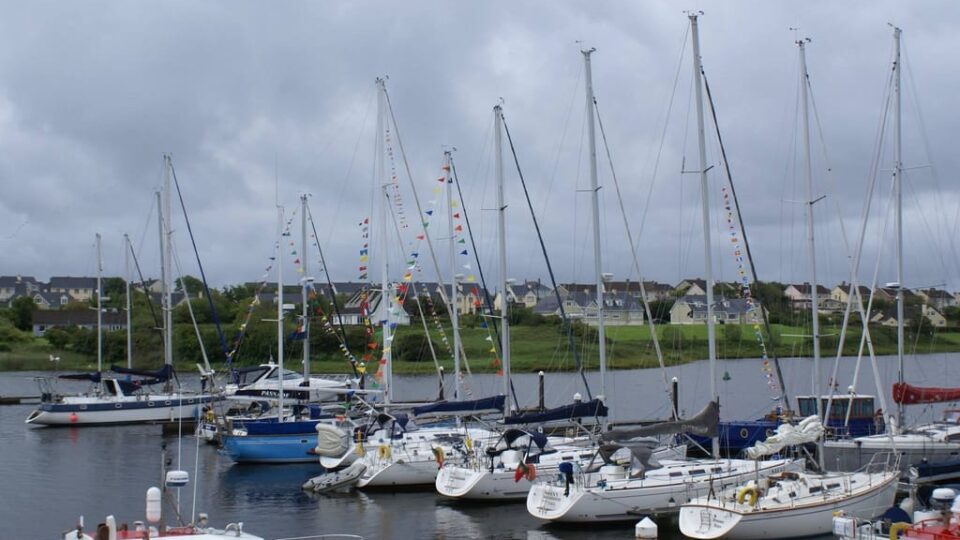Is Living on a Boat Practical?
Firstly, what is a liveaboard boat? A liveaboard is a type of boat designed for people to live on for extended periods, either for recreational, sporting activities, or practical reasons, and requires one to stay on the water frequently. It is a type of boat that is constructed to allow the occupants of the boat to live comfortably while going on boating expeditions. It is unique because other boats of their size do not have such features. In summary, it is a boat designed for “luxurious living” on water.
What does the sailing term “marina” mean? A marina is a type of dock that differs from the usual. It is a small dock that allows only small and usually fancy boats such as sailboats, yachts, and motorboats to dock their water vessels. A marina is different from the usual ports that dock all types of boats, such as ships, large boats, etc. A marina is usually owned privately rather than publicly. Because of this factor, docking fees at marinas are expensive compared to the ports that are publicly owned.
The issue to consider is whether living on a boat in a marina should be a good and practical decision. Some of the factors that will determine this are:
Expenses
Living onboard in a liveaboard on a marina is not as cheap and practical as most people assume. A lot of expenses and necessary charges are usually incurred on the occupants of such boats. The first charges on the boat are usually the payments made for a marina slip. As parking areas are for cars, boat/marina slips are docking areas on a marina. These payments for a marina slip differ depending on the time that will be spent on the marina.
Charges may be placed on occupants daily, monthly, or even yearly, depending on the agreement between the boat occupants and the marina authorities. A major factor that will determine the cost of such charges is the size of the liveaboard boat. The larger the boat, the greater the expenses it will incur. Extra charges are also incurred on occupants of the liveaboards because they use the docking space frequently.
Mooring expenses are also expenses that a person who wants to live on a boat in a marina must consider. A mooring fee is a time-based charge applied to all boating vessels for the use of buoys. Occupants of a liveaboard will have to factor in the cost of getting a buoy in other make sure that the boat is properly attached to the dock.
Although mooring charges are not as high as one made for a marina slip, it can be expensive to live in the marina for long periods. So, it is advisable for a person who wants to live on a liveaboard boat in a marina to have an efficient budget that will cover all these necessary changes.
Boats need frequent servicing in order to prevent major parts like the engine from malfunctioning. When a boat is left dormant for a long while, it can cause the parts to develop faults. To prevent this, the boat (liveaboard boat) will need to be serviced frequently to prevent any problem from developing.
Batteries of a boat are another factor to be considered if one wants to live onboard. This is because they are complicated parts that must be taken care of frequently. Most liveaboards have a minimum of 4 (four) batteries, and the cost of one can range from $900 (nine hundred dollars) to $3000 (three thousand dollars). In the long run, this is pretty expensive, no thanks to the accrual of maintenance costs.

>>Also Read: How Much Does It Cost To Live On a Boat
Comfort/Practicality
Before moving into a boat to live there for a long while, you should assume that life will be harsher than living in an actual house due to the difference in circumstances and other factors. First, the usual connection to technological devices will be limited. Even when it is possible to acquire such devices, maintenance will be more expensive compared to land.
For instance, on a liveaboard, there are special types of refrigerators that are needed to store food and prevent spoilage. These refrigerators cost two or three times more than the usual refrigerators and are also very expensive to maintain. This is because they are usually connected to the boat’s engine that runs on fuel. This will significantly increase the amount of money spent on fuel.
Network connectivity is another factor that you should consider if you want to live on a liveaboard in a marina. The tariff on the marina’s network, including Wi-Fi, is usually very high, and the network connection is equally slow. In other words, the cost of internet in water areas such as a marina is high for a poor connection.
Storage is another matter that must be thoroughly considered, especially if more than one person will be living in the liveaboard for an extended period. Liveaboards, due to their function, are like mini-cruise boats because they are not usually large. Impliedly, internal storage space is not something to look forward to.
Careful planning must be done before moving into the liveaboard, and necessities like food, clothing, and equipment such as refrigerators must be prioritized. This is a crucial factor that must be treated carefully to prevent the boat from being cramped up.
Boat Repairs
While living on a liveaboard, it is inevitable for a part of the boat to malfunction, even if it is not used frequently. When this happens, the occupants on the liveaboard boat will need to have basic skills on how to fix minor issues that occur, such as a break in pipework or a part of the liveaboard that needs replacement. Sometimes boating courses will need to be taken to learn some of these skills, and they will consume time and money.
Despite this, there are some damages on the boat or some repairs that will require a professional. The cost of repairing such parts and paying the hired contractor will vary according to the issue. Although, generally, hiring a professional will cost a lot in a marina due to the monopoly of services. You might think that the same applies to living in a regular house, but small damages happen more regularly on a boat and are more expensive to fix.
Safety and Security
The safety of human lives and properties is another factor that cannot be over-emphasized. Occupants of the liveaboard boats must be aware of their surroundings because of the risk of thefts and other actions. Generally, due to the charges paid and the fact that marinas are privately owned, the security in such areas is high. Most times, extra charges are usually paid for security in a marina to prevent one’s property from being stolen.
If the security of the marina is not up to one’s satisfaction, there are other alternatives to consider. For instance, if pets are allowed into the marina (not all marinas allow pets because of the noise they generate), dogs specifically can be used to protect the liveaboard at night or when one is asleep. Other security measures can be taken to ensure the safety of properties on a liveaboard.
Also, to ensure the safety of lives on the liveaboard, safety equipment such as a life jacket, fire extinguishers for fires, smoke alarms, and propane sniffers can be installed on the liveaboard. Periodic checks can also be carried out on the various parts of the boat that are flammable and can cause harm to the liveaboard.
>>Also Read: All You Need to Know About The Liveaboard Life
Is Living on a Boat Practical? – Conclusion
After considering these factors, it is safe to conclude that living on a liveaboard in a marina is not expensive, uncomfortable, and not very practical. If it is a choice one has to make, then the decision must not be based on saving money. Living on a liveaboard in a marina is not a pleasurable experience, as most people will assume. So, you must carefully evaluate your options before moving into a marina.
